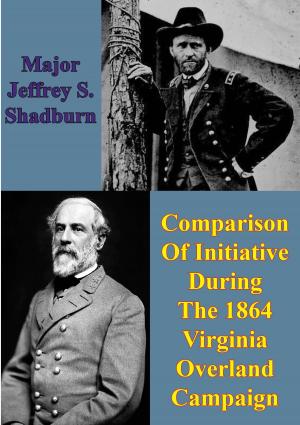The Achieving Society
Business & Finance, Business Reference, Business Writing, Marketing & Sales, Advertising & Promotion| Author: | Prof. David C. McClelland | ISBN: | 9781787202917 |
| Publisher: | Golden Springs Publishing | Publication: | November 11, 2016 |
| Imprint: | Golden Springs Publishing | Language: | English |
| Author: | Prof. David C. McClelland |
| ISBN: | 9781787202917 |
| Publisher: | Golden Springs Publishing |
| Publication: | November 11, 2016 |
| Imprint: | Golden Springs Publishing |
| Language: | English |
Harvard University Professor David C. McClelland is chiefly known for his work on achievement motivation, but his research interests extended to personality and consciousness. He pioneered workplace motivational thinking, developing achievement-based motivational theory and models, and promoted improvements in employee assessment methods, advocating competency-based assessments and tests, arguing them to be better than traditional IQ and personality-based tests. His ideas have since been widely adopted in many organisations, and relate closely to the theory of Frederick Herzberg.
He is most noted for describing three types of motivational need, which he identified in this book, The Achieving Society: 1. achievement motivation (n-ach), 2. authority/power motivation (n-pow), 3. affiliation motivation (n-affil).
First published in 1961, his classic book provides a factual basis for evaluating economic, historical, and sociological theories that explain the rise and fall of civilizations.
Harvard University Professor David C. McClelland is chiefly known for his work on achievement motivation, but his research interests extended to personality and consciousness. He pioneered workplace motivational thinking, developing achievement-based motivational theory and models, and promoted improvements in employee assessment methods, advocating competency-based assessments and tests, arguing them to be better than traditional IQ and personality-based tests. His ideas have since been widely adopted in many organisations, and relate closely to the theory of Frederick Herzberg.
He is most noted for describing three types of motivational need, which he identified in this book, The Achieving Society: 1. achievement motivation (n-ach), 2. authority/power motivation (n-pow), 3. affiliation motivation (n-affil).
First published in 1961, his classic book provides a factual basis for evaluating economic, historical, and sociological theories that explain the rise and fall of civilizations.

![Cover of the book Staff Ride Handbook For The Battle Of Shiloh, 6-7 April 1862 [Illustrated Edition] by Prof. David C. McClelland](https://www.kuoky.com/images/2014/august/300x300/9781782895305-0ab4_300x.jpg)





![Cover of the book The American War of Sucession – 1861-1862 {Illustrated Edition] by Prof. David C. McClelland](https://www.kuoky.com/images/2012/may/300x300/9781908902603-fHpC_300x.jpg)




![Cover of the book Elmer Wheeler’s Tested Public Speaking [Second Edition] by Prof. David C. McClelland](https://www.kuoky.com/images/2016/october/300x300/9781787201477-wpuf_300x.jpg)
![Cover of the book A Soldier's Recollections [Illustrated Edition] by Prof. David C. McClelland](https://www.kuoky.com/images/2013/february/300x300/9781908902771-kO4t_300x.jpg)
![Cover of the book Red Badge of Courage [Illustrated Edition] by Prof. David C. McClelland](https://www.kuoky.com/images/2013/february/300x300/9781908902757-OBfC_300x.jpg)
